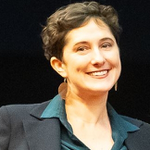Speakers
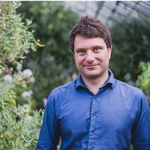
Eric Allan
Professor at University of Bern
https://allanecology.com/about-us/people/prof-dr-eric-allan/KEYNOTE
Title: Biodiversity and ecosystem functioning: from experiments to the real world and back again
Many experiments have shown that biodiversity can be a major driver of ecosystem functioning. However, it has been unclear how well these findings translate to "real-world" natural or managed systems undergoing global change. I present data from German agricultural grasslands, showing that diversity loss across multiple trophic groups is a major component of land use effects on functioning, alongside direct effects and effects of compositional change. Analysing data from real-world ecosystems is essential to test the functional importance of diversity loss but analyses are complicated by correlations between different drivers of functioning. In order to fully separate mechanisms by which global change can affect function, I present data from a new experiment recently set up near Bern which separates direct effects of global change from indirect effects mediated through changes in diversity, composition and multitrophic interactions. These different approaches show that biodiversity loss is a major driver of functional change but that it needs to be considered alongside other mechanisms in order to understand how ecosystem functioning responds to global change
KEYNOTE
Title: The evolution of a social circulatory system: from mutualism to distributed communication
How can a superorganism, e.g. a social insect colony, collectively manage important trade-offs like when to invest resources in growth, maintenance or reproduction? Unlike cells in a multicellular organism, individual ants in a colony are not physically connected at all times via an enclosed circulatory system. Instead, some species exchange fluids mouth-to-mouth through a behavior called trophallaxis. The trophallactic network connects each member of the colony including developing larvae, forming a “social circulatory system” over which both externally-sourced and endogenously-produced resources flow. I’ll describe our recent research using trophallactic fluid transmission as a lens to study the evolution of behavior, and how this fluid may distribute the machinery of the fecundity-longevity trade-off over the social network of the colony.
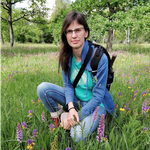
Marina Semchenko
Dr. at University of Manchester
https://www.research.manchester.ac.uk/portal/en/researchers/marina-semtsenko(113c4fe0-b030-41a5-a578-f294bd68ac49).htmlKEYNOTE
Title: Local adaptation in grassland plants: consequences for community assembly and evolutionary potential
Plants are well known to adapt to aspects of the local abiotic environment, such as climate or soil type. However, local adaptation to biotic factors, such as competitors, and microbial antagonists and mutualists, is less well understood. Moreover, the wider implications of local adaptation for community-level processes have received little attention. I will use examples from my published work, as well as preliminary findings, to explore how local adaptation to the biotic environment can impact community assembly and how adaptation to one global change factor may influence the capacity of plants to respond to other environmental changes.
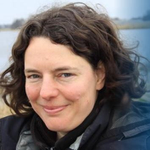
Elisabeth S. Bakker
Professor at Wagening University
https://nioo.knaw.nl/nl/employees/liesbeth-bakkerKEYNOTE
Title: Rewilding degraded landscapes: restoring natural processes to improve biodiversity
Habitat loss and degradation as well as exploitation have created the current biodiversity crisis. Conservation is not enough; active restoration is needed to bend the curve of biodiversity loss. Rewilding is a relatively novel approach to ecosystem restoration which aims to restore natural processes, which can increase biodiversity. I will give examples of different forms of rewilding, including increasing the role of water level dynamics, increasing connectivity between land-water and freshwater-marine ecosystems, wildlife comeback and the role of large herbivores in ecosystems. Looking with a rewilding view at our current landscapes shows that there are ample opportunities to restore ecosystems, especially when combined with climate change mitigation.
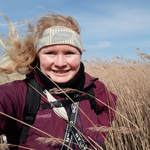
Line Holm Andersen
Post doc at Aalborg University
Title: The effect of commercial reed harvest on invertebrate biomass and diversity
Natalie Iwanycki Ahlstrand
Postdoc at Natural History Museum of Denmark, Copenhagen University
Title: Herbarium data out performs citizen science phenology data in detecting response of flowering time to climate change in Denmark
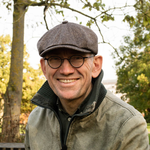
Hans Henrik Bruun
associate professor at University of Copenhagen
Title: Simple attributes predict the value of plants as hosts to fungal and arthropod communities
Cristina Barber
Ph.D. candidate at Boise State University
Title: Predicting landscape-scale natural tree recruitment in tropical agricultural landscapes: the value of species-specific tree crown maps and land ownership data
Erick Lundgren
Postdoc at Aarhus University
Introduced herbivores restore Late Pleistocene ecological functions
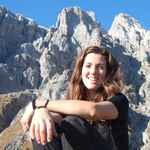
Lucrezia Unterholzner
PhD candidate at University of Padua
Flash talk
Title: Insight on shrub responses to environmental changes: The Juniper case
Marianne Damholdt Bergin
PhD student at Aarhus University
Flash talk
Title: The potential of rewilding in Danish Nature National Parks
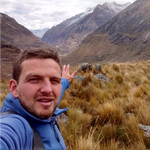
Daniel Maurenza
PhD. Student at Universidade Federal do Rio de janeiro
Flash talk
Title: Does human disturbance lead to biotic homogenization? A review of the evidence from a biodiversity hotspot
Aparajita
Ph. D. Student at Indian Institute of Science Education and Research Mohali
Flash talk
Title: Generalized immunity of immune evolved flies : dealing with two pathogen at a time
Jacob Weiner
Professor at Univ Copenhagen
Flash talk
Title: Applying plant ecology to agriculture: Allometry and yield stability of cereals
Roel Lammerant
Uppsala University
Flash talk
Title: Impact of experimental soil moisture manipulation on tropical tree seedling demographic fates and functional traits
Jonathan Von Oppen
PhD candidate at Aarhus University
Flash talk
Title: Shrub and bryophyte vegetation control microclimatic offset in arctic tundra
Angela Luisa Prendin
Postdoc at Aarhus University
Flash talk
Title: Early summer temperature and precipitation (but not sea surface temperature) influence Juniperus growth at Faroe Islands
